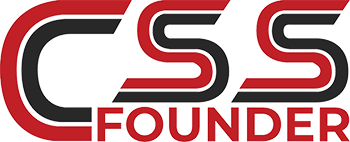Websites are made and designed by a web design firm for customers. Usually, this entails thinking out and organising the structure and functioning of a website, producing graphic designs, and occasionally coding code to put the design into practise. The business might also offer further related services including search engine optimization (SEO), hosting, and website upkeep. The objective is to assist clients in building a solid online presence and successfully using their website to interact with their target audience.
how web design company create website
The processes that web design company normally follows to construct a website include the following ones:
- Recognizing the needs and objectives of the client for the website
- preparing the layout, content, and features of the website
- Making wireframes and mock-ups to visualise the website’s design and layout
- designing and putting into practise the website, including the choice of colours, fonts, photos, and other visual components
- JavaScript, CSS, and HTML coding are used to implement the design.
- ensuring that the website functions properly and is responsive across a range of platforms, including desktops, laptops, tablets, and smartphones
- A website’s usability, functionality, and compatibility with various browsers and devices are all tested.
- launching the website and continuing to offer upkeep and assistance to maintain it safe and secure.
The precise methods and procedures required to create a website can change depending on the web design company in Mumbai, the complexity of the website, and the unique demands and requirements of the client.
Factors of website development
A website’s evolution is influenced by a number of important elements, including:
Goals and objectives: What the website aim to do, whether it is to provide information, generate leads, or carry out e-commerce transactions.
Target audience: The group of users the website is intended to attract, including details on their demographics, interests, and usage habits.
Content: The text, graphics, audio, and other materials that will be displayed on the website, as well as the way they are arranged and displayed.
Design: The layout, colour scheme, typography, and other visual components that give a website its overall appearance and feel.
Functionality: The capabilities and features of a website, including interactive elements, e-commerce shopping carts, and contact forms.
Technology: The platforms and tools used to create the website, such as the content management systems, programming languages, and hosting settings.
SEO: Search engine optimization. It refers to the methods and tactics used to raise a website’s standing and visibility in search engines like Google.
Accessibility: Taking into account users with disabilities, such as making sure the website can be used with a keyboard or screen reader.
Security: Website security refers to the steps taken to safeguard the website and its visitors from potential security risks including malware, hacking, and data breaches.
Testing and quality assurance: The process of examining and confirming the usability, performance, and operation of a website before it is made public.
The development and launch of a website that successfully satisfies the needs of its target audience and accomplishes its objectives depends on balancing and maximising these variables.
Why choosing web design company is ideal
A web design business is the best option for various reasons:
Expertise and experience: A reputable web design firm is equipped with the skills and knowledge necessary to produce a website that is efficient, user-friendly, and aesthetically pleasing. They have a group of designers, developers, and project managers who are equipped with the knowledge and resources needed to create excellent websites.
Cost-effectiveness: In the long term, working with a web design company can be less expensive than hiring an internal team or attempting to do it yourself. They frequently charge competitive prices for their services, and they have the tools and technology to build websites quickly.
Customization and adaptability: A web design business may collaborate with you to develop a website that is specifically tailored to your needs and objectives. As your needs change over time, they can also update and modify the website.
Professionalism and dependability: A web design business is dedicated to offering a service that is both professional and dependable. They will adhere to deadlines, keep you updated throughout the development process, and make sure the final product is of the greatest calibre.
Continuous support and maintenance: To keep your website current and functional, a reputable web design firm will offer ongoing support and maintenance. Regular updates, backups, security precautions, and troubleshooting are all part of this.
In general, hiring a web design firm is the best option for companies and organisations that want to have a solid online presence and accomplish their objectives through their website.








